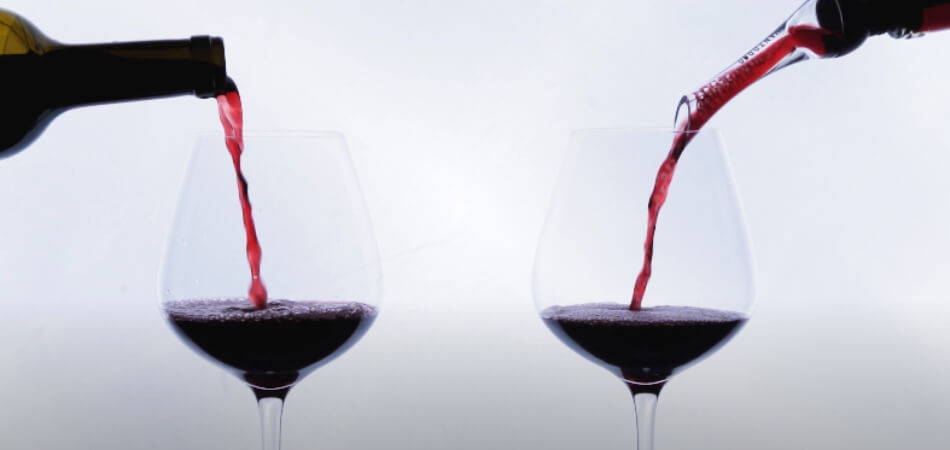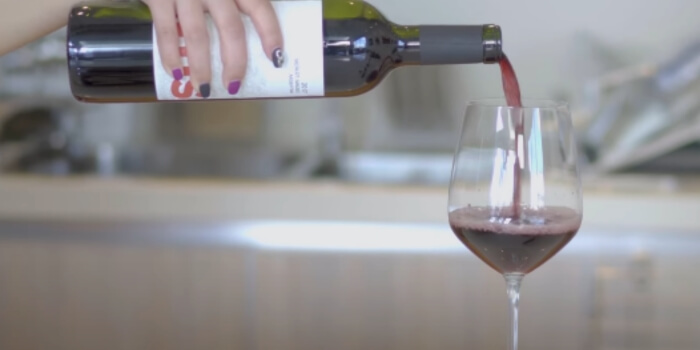Wine has a unique ability to transport us to different times and places, evoking memories and creating new ones with every sip. Whether you're an occasional wine drinker or a dedicated oenophile, you've probably heard of a wine aerator and wondered: Is a wine aerator worth it?
The answer really depends on your tastes, the type of wine you enjoy, and how you like to savor it. Wine aerators promise to make your wine taste better by letting it breathe and unlock its hidden flavors and aromas.
In this journey, we'll demystify wine aerators. We'll explore how they work and what they can (or can't) do for your wine. By the end, you'll have a clear idea of whether investing in a wine aerator aligns with your wine-tasting preferences. So, let's uncork the truth
What is a Wine Aeration?
Wine aeration, a fundamental but often misconstrued aspect of wine appreciation, revolves around the deliberate exposure of wine to oxygen. This process significantly impacts the taste and aroma of wine.

Aeration, achieved through techniques like swirling in a glass or decanting into a separate vessel, sets off chemical reactions in the wine. The most notable transformation is the softening of tannins, a quality particularly appreciated in red wines, as it imparts a smoother and less astringent character.
This interaction with oxygen also allows volatile compounds within the wine to evaporate. Consequently, the wine's bouquet becomes more pronounced, offering a wider array of scents and flavors.
However, exercise caution, as not all wines benefit equally from aeration; overexposure to air can lead to oxidation, causing the wine to become flat and lackluster. Hence, determining the ideal level of aeration for each specific wine is crucial to fully appreciating its unique characteristics.
How Does Aeration Affect Wine?
Aeration is a transformative process in the world of wine, impacting its taste and aroma in profound ways. By exposing wine to oxygen, whether through decanting or swirling in a glass, several key effects emerge.
Enhanced Flavor and Smoothness
Aeration softens harsh tannins in red wines, resulting in a smoother and more balanced taste. This effect is particularly pronounced in young, bold reds. It allows you to appreciate the underlying fruit flavors without the distraction of excessive astringency.
Aromas Unleashed
Aeration helps volatile compounds in wine evaporate, enhancing its aromatic profile. As the wine interacts with oxygen, it releases a broader spectrum of scents and flavors. The bouquet becomes more pronounced, revealing intricate nuances that might have remained hidden otherwise.
Reduced Sulfur Compounds
For some wines, particularly whites and those high in sulfur compounds, aeration can reduce undesirable odors like the “rotten egg” smell associated with sulfur. The exposure to air helps dissipate these compounds, resulting in a cleaner and more pleasant aroma.
Integration of Components
Aeration encourages the integration of various components in wine, such as fruit, acidity, and tannins. This harmonious blending enhances the wine's overall balance and structure. It allows individual elements to come together, contributing to a more unified and enjoyable tasting experience.
Maturation Mimicry
Aeration can mimic the aging process, which is essential for certain wines like red Bordeaux. It accelerates the wine's development, making it taste more mature and complex than it would if opened and consumed immediately after bottling.
Is a Wine Aerator Worth It?
Wondering, is a Wine Aerator worth It? is a common question among wine enthusiasts exploring ways to elevate their tasting experience.

Wine aerators are simple devices designed to enhance your wine by allowing it to breathe. They promise to soften tannins, unlock hidden flavors, and reveal the full spectrum of aromas. However, whether a wine aerator is worth the investment depends on several factors.
Personal Taste
Your preferences play a significant role in determining the worth of a wine aerator. Those who favor robust red wines, such as Cabernet Sauvignons or Syrahs, may find more value in aeration. If you tend to lean toward lighter whites or sparkling wines, you might not see as much benefit.
Wine Type
The type of wine you enjoy matters. Young, bold red wines with pronounced tannins often benefit most from aeration. These wines can evolve and soften, revealing complex flavors. Conversely, some wines, like well-aged Bordeaux or delicate Pinot Noirs, may not require aeration, as they are more refined and balanced from the outset.
Drinking Habits
How you typically enjoy wine matters. If you're a casual drinker who enjoys wine soon after opening the bottle, a wine aerator might not be as crucial. Frequent wine enthusiasts who savor their bottles over time may find it more beneficial.
Wine Variety
Different grape varieties and wine styles react differently to aeration. Beyond reds and whites, consider the unique attributes of the wines you love. For example, some full-bodied Chardonnays can benefit from aeration, but it may not be necessary for every white wine.
Wine Age
The age of the wine matters. Young wines often benefit from aeration to open up, allowing their flavors and aromas to evolve. In contrast, older wines can be more fragile and require gentler treatment to avoid over-aeration.
Time Constraints
Think about your timeline for enjoying wine. If you often open a bottle just before a meal, aeration might not fit your routine, making alternatives like decanting or swirling more practical. On the other hand, if you enjoy wine evenings or collect wines for aging, a wine aerator could become a valuable tool in your wine toolkit.
Alternative Ways to Make Wine Taste Better
Elevating your wine-tasting experience often goes beyond traditional methods, and exploring alternative ways to make wine taste better can be intriguing. While wine aerators are popular, there are additional techniques and tools worth considering.

Decanting for Depth
Decanting is a classic method that not only separates wine from sediment but also allows it to breathe. This process enhances the flavors and aromas of older wines, bringing out their full potential.
Swirling for Aromatics
The simple act of gently swirling wine in your glass can expose it to oxygen, unlocking a symphony of aromas. This technique is especially effective when you want to savor the nuances of a wine's bouquet.
Double Pour for Balance
Transferring wine back and forth between two glasses with the double pour technique introduces oxygen and can soften the wine's profile. It's a method that can harmonize the wine's elements for a more balanced taste.
Splash Decanting for Quickness
Splash decanting is the art of pouring wine with vigor into a decanter or glass, creating aeration through splashing. This quick and lively approach can swiftly enhance the wine's flavor and aroma.
Wine Purifier for Purity
The wine purifier is a modern tool that cleans up wine by removing impurities and bad smells, making it taste better. For instance, The Wand is a popular wine purifier using nanotechnology to remove sulfites and sediment for a smoother taste.
Pros and Cons of Using Wine Aerator
In the quest to unlock the full potential of your wine's flavors and aromas, the wine aerator emerges as a tempting ally. However, before you decide if it's your vinous companion, it's essential to weigh its advantages and disadvantages carefully.
Pros:
- Enhanced Flavor and Aroma: Wine aerators can significantly boost the flavor and aroma of your wine, making it more enjoyable and expressive.
- Softer Tannins: Particularly effective with red wines, they soften harsh tannins, leading to a smoother, more approachable taste.
- Reveals Hidden Nuances: Aeration brings out subtle nuances and scents, allowing you to savor the wine's full complexity.
- Quick and Convenient: Wine aerators are fast and user-friendly tools, perfect for those impromptu wine-tasting moments.
- Ideal for Young Wines: They work wonders with young wines, enhancing their taste and making them more enjoyable.
- Decanting Effect: Wine aerators can mimic the effects of traditional decanting, saving time without compromising the taste.
- Improved Balance: They contribute to the wine's overall balance and structure, creating a more harmonious drinking experience.
Cons:
- Not Universal: Aeration doesn't benefit all wines equally; some may even be negatively affected, particularly delicate or mature wines.
- Delicate Wines: Delicate wines with subtle flavors may lose their finesse with excessive aeration, making it essential to match the method with the wine.
- Risk of Oxidation: Over-aeration can lead to oxidation, resulting in a flat-tasting wine, so it's crucial to control the aeration process.
Conclusion
In the vibrant world of wine, the pursuit of the perfect sip is a personal journey filled with choices. The question that often lingers: Is a Wine Aerator worth it? We've dive into the intricacies of wine aeration, uncovering its potential to elevate your wine-tasting experience. Aeration can soften tannins, unveil hidden aromas, and heighten the overall enjoyment of your cherished vintages.
However, in the realm of wine, individual preferences reign supreme. Your unique palate, the specific wines you relish, and your preferred way of savoring them all play vital roles in the equation. The value of a wine aerator ultimately hinges on these factors.
As you reflect on the question of whether a wine aerator adds value, delve into your wine journey. Consider the wines that captivate your senses and the occasions they grace. Contemplate how aeration might elevate those experiences. Ultimately, the decision rests in your hands, as unique as the bouquet of your cherished bottle.






